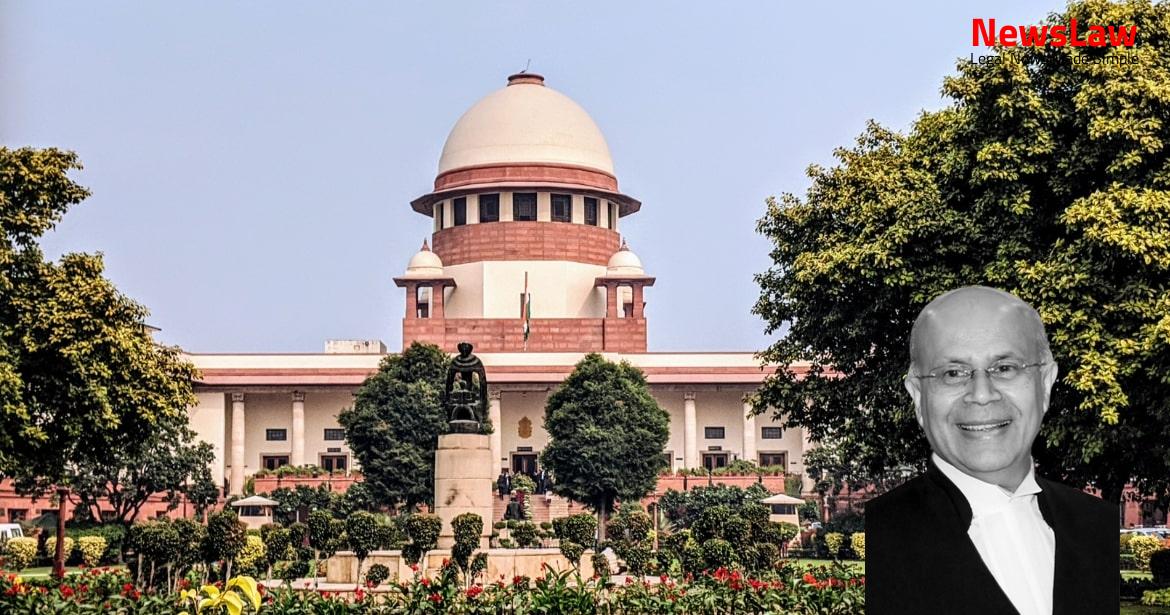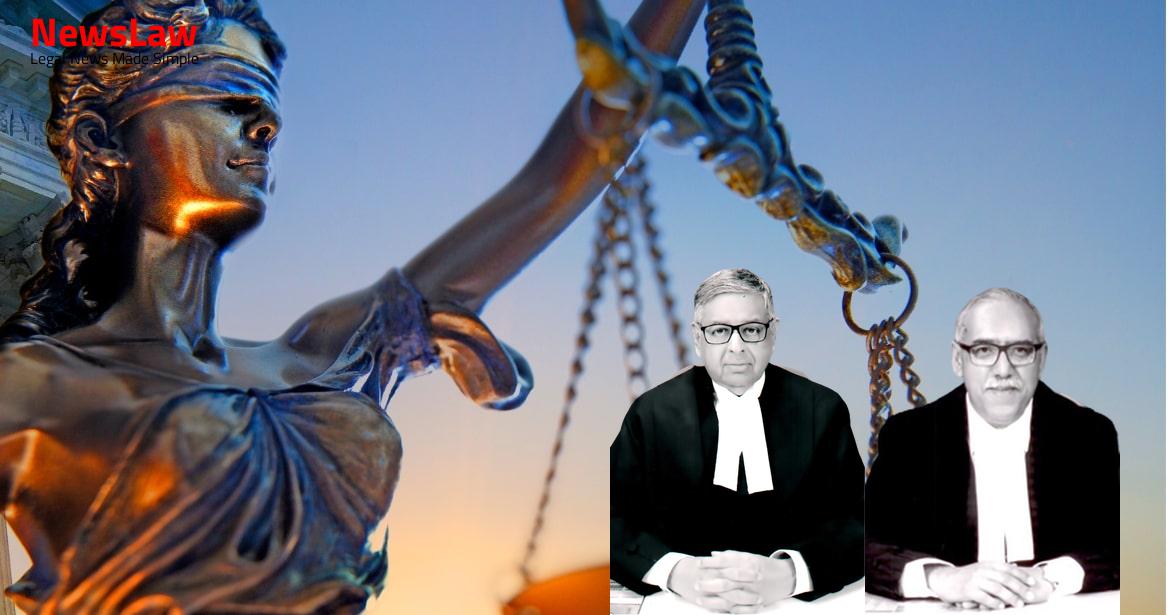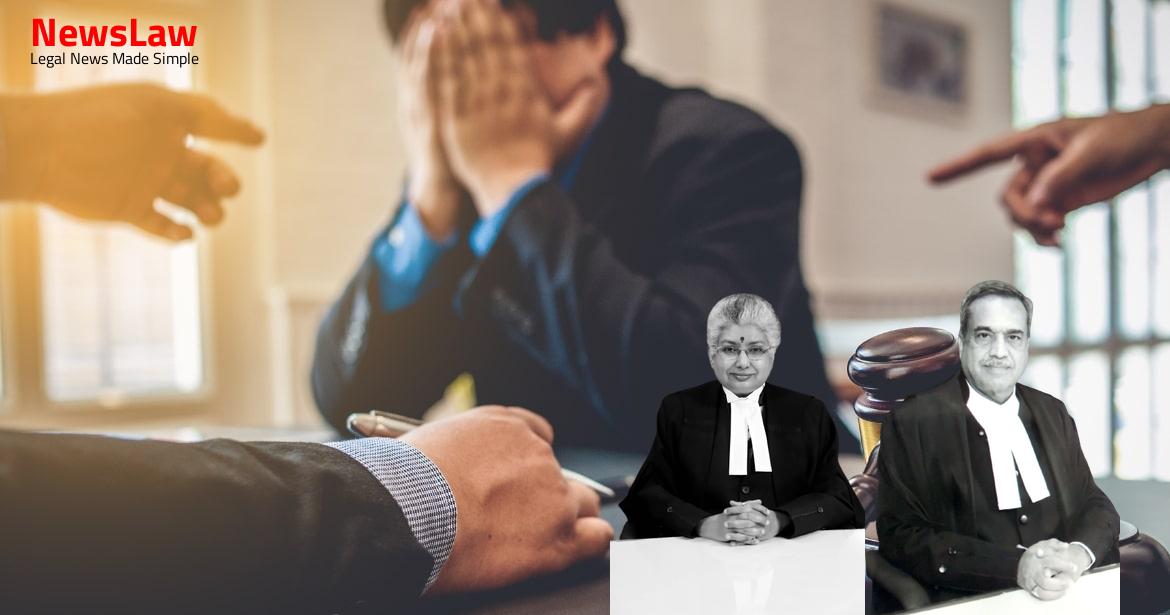In a recent legal case, the High Court substantially increased compensation for the loss of estate in a motor accident case, focusing on legal principles and analysis. The court’s decision was based on a detailed review of evidence and legal arguments presented, leading to an enhanced compensation amount reflective of the damages suffered. This blog explores the legal aspects of the case, emphasizing the court’s considerations in determining the compensation for the estate of the deceased party.
Facts
- The claimant filed a compensation claim under Section 166(1)(a) of the Motor Vehicles Act, 1988.
- The claimant’s unmarried 21-year-old daughter was substituted in the appeal.
- The Motor Accidents Claims Tribunal awarded the claimant a sum of Rs.1,00,000/- with 9% interest on 02.11.2006.
- The claimant passed away on 06.11.2015 during the appeal, not due to the accident injuries.
- The original claimant and his wife did not survive to see the conclusion of the litigation, now pursued by their daughter.
- An appeal was lodged by the original claimant before the High Court citing dissatisfaction.
- The High Court substantially increased the compensation awarded in the case.
- The decision was made after a thorough review of the evidence and legal arguments presented.
- The new compensation amount reflects the full extent of the damages suffered by the plaintiff.
Arguments
- Legal heir entitled to compensation from the estate of the deceased
- Loss of salary, future prospects, pain and suffering not part of the deceased’s estate
- Married daughter not entitled to claim if not dependent on deceased
- Claim for personal injuries abate with death of injured party
- Deduction for personal expenses may be hypothetical in cases of death
- Compensation not based on multiplier in cases not directly caused by accident
- Amount awarded by Tribunal forms part of deceased estate
- Supporting decisions from Karnataka High Court provided
- The High Court awarded loss of income along with future prospects with a multiplier of 11 based on case law references.
- The compensation was enhanced by the High Court as loss of the estate of the deceased, not personal injuries, and thus, no interference is required.
- Claims such as loss of income, medical expenses, etc. will survive as part of the loss to the estate.
- The injured party suffered 100% physical disability, leading to the inability to pursue a career and necessitating a shift to his home town in Punjab.
Analysis
- The High Court enhanced the compensation to Rs.37,81,234 by considering the claimant’s annual salary with future prospect and applying a multiplier of 11.
- Legal representatives can pursue claims for loss of property similar to the estate of the deceased in case of death not attributable to the accident or injuries under Clause 1(c) of Section 166.
- The claimant suffered serious disabilities including quadriplegia and required extensive treatment.
- The original claimant’s vehicle was hit by a lorry causing the need for transfer of the claim case to the High Court due to the impact on his life and career.
- The disability certificate issued to the claimant highlighted the severity of his injuries and physical limitations.
- The Tribunal’s award of compensation was considered inadequate and the concept of property under the Act was discussed as having a broad definition.
- The claimant, a law graduate, had to prematurely resign from his job as Deputy General Manager due to the injuries sustained.
- Claims for personal injuries would cease upon the death of the injured, while legal representatives could pursue claims for loss of estate.
- The claimant’s injuries led to significant medical interventions including spinal shock, quadriplegia, and respiratory failure.
- Section 166(1)(a) of the Act allows for a statutory claim for compensation by the person injured in an accident.
- The claim for personal injuries does not survive on the death of the injured unrelated to the accident.
- Legal representatives can pursue the claim for enhancement of the loss of the estate, including medical expenses, travelling, attendant, diet, doctor’s fee, and reasonable annual accretion to the estate.
- Income of a person contributes to expenditure on themselves, family, and savings that go to the estate.
- Unforeseen expenses must be met from the estate, causing pecuniary loss to the estate.
- Defence under Section 306 of the Indian Succession Act, 1925, based on the maxim ‘actio personalis moritur cum persona’ was rejected in Maimuna Begum case.
- In Venkatesan case, the injured claimant who appealed dissatisfied, passed away during the appeal process.
Decision
- Compensation awarded under the Act for loss of estate
- Consideration of the nature of injuries and treatment
- Consideration of the expenditure incurred for treatment
- Consideration of the loss of income
Case Title: THE ORIENTAL INSURANCE COMPANY LIMITED Vs. KAHLON @ JASMAIL SINGH KAHLON (DECEASED) THROUGH HIS LEGAL REPRESENTATIVE NARINDER KAHLON GOSAKAN (2021 INSC 403)
Case Number: C.A. No.-004800-004800 / 2021



